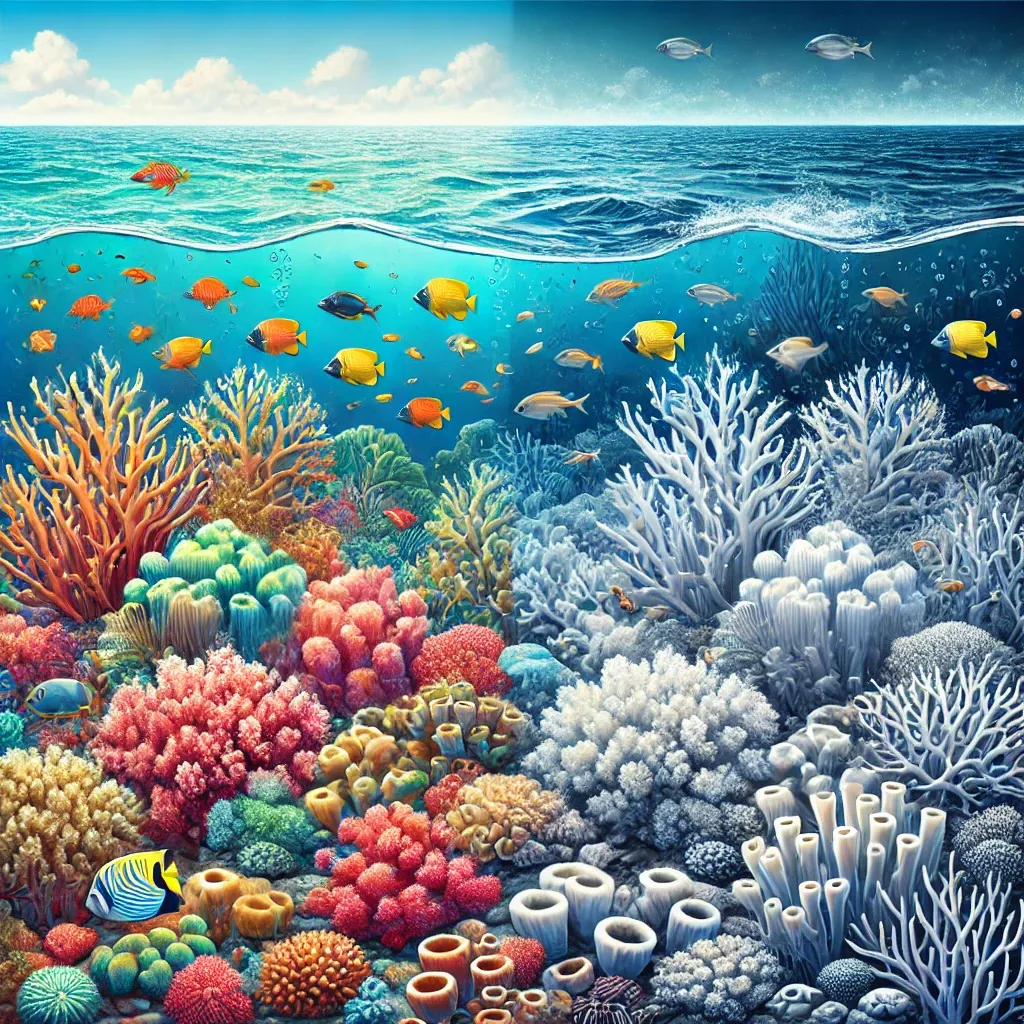How does Acidic Water Impact Coral Growth?
Article Source
From the research paper "Effects of Ocean Acidification on Coral Growth: A Comprehensive Study" Read Full Article

Why You Should Care
Ocean acidification is a major environmental issue that threatens coral reefs, which are vital to marine ecosystems. Corals provide habitats for about 25% of marine species, protect coastlines from erosion, and support fishing and tourism industries worth billions of dollars. Understanding how acidification affects corals helps us find ways to protect these important ecosystems and ensure their survival for future generations.
Answering the Question: How does Acidic Water Impact Coral Growth?
From a researcher's perspective, ocean acidification significantly hampers coral growth. The study found that increased levels of CO2 in the atmosphere lead to more acidic oceans, which in turn disrupts the process corals use to build their skeletons. As a result, coral growth rates can decline by up to 50%, severely impacting the health and sustainability of coral reefs.
How Was the Study Done?
Researchers conducted experiments by simulating future ocean conditions with higher acidity levels. They used tanks to mimic ocean environments and exposed various coral species to these conditions over several months. The growth rates, skeletal density, and overall health of the corals were then measured and compared to those in normal ocean conditions. Additionally, field studies were conducted to observe the impact of acidification in natural coral reef settings.
What Was Discovered?
- Growth Reduction: Corals exposed to higher acidity showed a 30-50% reduction in growth rates compared to those in normal conditions.
- Skeletal Weakness: The skeletal density of affected corals decreased by 20%, making them more fragile and susceptible to damage.
- Reproductive Challenges: Acidification impaired coral reproduction, with a 40% decrease in the production of larvae.
- Species Variation: Different coral species responded differently to acidification, with some showing resilience while others experienced severe impacts. For instance, branching corals had a 35% decline in growth, while massive corals showed a 25% decline.
- Field Observations: Natural reef studies indicated that areas with higher acidification had 25% less coral cover and biodiversity.
Why Does It Matter?
These findings highlight the urgent need to address ocean acidification to protect coral reefs. Reduced coral growth and weakened skeletons mean reefs are less able to provide essential ecosystem services, support marine life, and protect coastlines.
The decline in coral health also affects local economies that rely on fishing and tourism, which generate approximately $375 billion annually. By understanding these impacts, we can take steps to reduce CO2 emissions, promote conservation efforts, and develop strategies to help corals adapt to changing ocean conditions.
Coral reefs are crucial to our planet's health, and protecting them from the effects of ocean acidification is essential. By learning about and supporting efforts to mitigate this issue, we can help ensure that these vibrant underwater ecosystems continue to thrive.
Reference:
- Effects of Ocean Acidification on Coral Growth: A Comprehensive Study. Read Full Article
